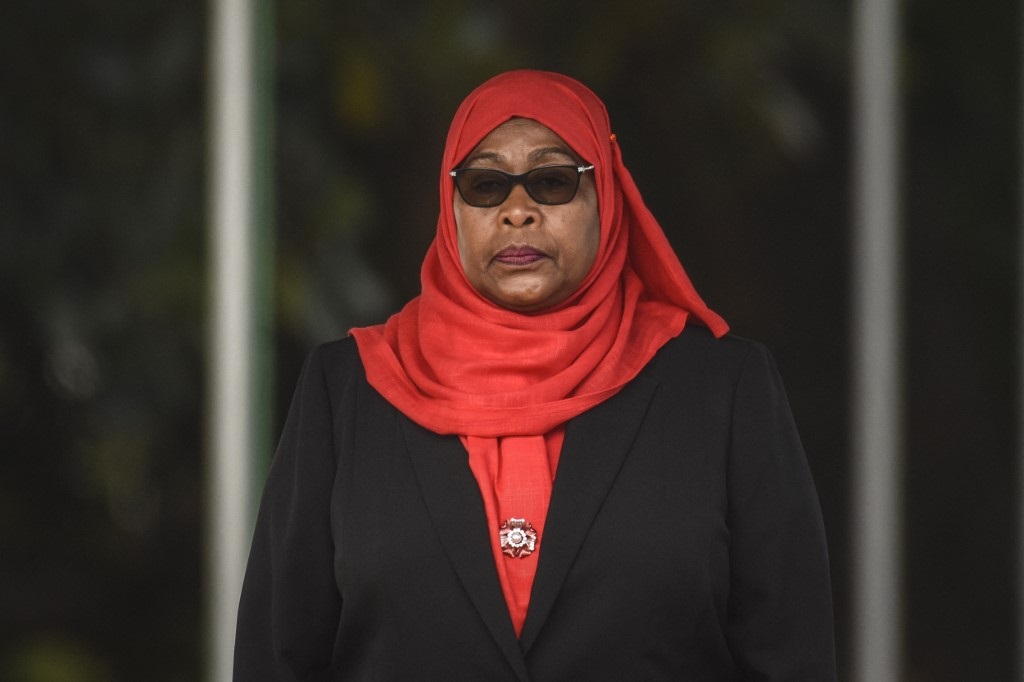Lenin Ndebele

Tanzanian President Samia Suluhu Hassan.
AFP
Tanzania is set to move 70 000 Maasai pastoralists to make way for trophy hunting and elite tourism.
The country's president was handed a petition on the sidelines of the EU-AU Summit last week.
Activists say the government is intimidating people and claiming that moving them is for the greater good of Tanzania.
A petition to stop the forced resettlement of more than 70 000 Maasai people from northern Tanzania was handed to the country's president on the sidelines of the recently ended European Union-African Union Summit in Brussels, Belgium.
The petition, which had been signed by 2.7 million by Friday last week, was handed to President Samia Suluhu Hassan's senior staff by Avaaz, an American-based online activist network.
READ | Tanzania's Maasai evicted in favour of tourism, group says
In an interview with News24, Sarah Morrison, Avaaz's campaign director, said they intended to draw the president's attention and show her international solidarity against the government's intentions to resettle the Maasai people.
"We hope that by standing in solidarity with the Maasai of northern Tanzania, we amplify their call and raise attention to the threats they are facing. We also hope that if the president sees the global community mobilising behind this call, she will champion the rights of her people, and oppose any attempt to evict them from their ancestral lands," she said.
On 21 January, the Tanzanian government revealed plans to evict 70 000 Maasai people from their 1500km2 ancestral lands in Ngorongoro Conservation Area and Loliondo in the Arusha region.
As more people move in, some are building fenced farms, limiting wild animals' space to roam. Livestock can overgraze the grasslands and in many places in the Mara, the diversity of habitats and wildlife has dropped.
The government plans to lease the land to a United Arab Emirates-based company that will create a wildlife corridor for trophy hunting and elite tourism.
The renewed decision by the government seeks to overrule a 2018 East African Court of Justice (EACJ) ruling that stopped the government from evicting Maasai communities from 1 500km2 of ancestral, legally registered land.
Morrison said this was the second time her organisation has worked to defend the Maasai people.
She said:
In 2013, we worked with Maasai elders of Ngorongoro District when they were facing similar threats of eviction. We launched our online campaign and, as this grew, the then-president promised they would never be evicted from their ancestral lands.
"And so, last week when the Maasai community got in touch with us again telling us about the ratcheting threats of eviction, we did what we believe is right: stand with Indigenous people and mobilise to help protect their rights.
"Having worked with Maasai communities across East Africa, we understand the vital role they play in stewarding conservation efforts. We believe conservation efforts must champion Indigenous people and protect their rights," she said.
Joseph Moses Oleshangay, from the Legal and Human Rights Centre in Tanzania, said the government was intimidating people and also claiming that the resettlement was of public interest.
He said:
In 2013, we worked with Maasai elders of Ngorongoro District when they were facing similar threats of eviction. We launched our online campaign and, as this grew, the then-president promised they would never be evicted from their ancestral lands.
The Ngorongoro Conservation Area was established by law in 1959 as a multiple Land Use Area for both Maasai pastoralism and wildlife conservation.
Loliondo, which has an area of around 4 000km2, was designated as a Game Control Area, a form of wildlife management that allows for co-existence between people and wildlife, in 1955.
The Maasai people, who largely occupy both the Ngorongoro Conservation Area and Loliondo, are the same community that was forced by the then colonial government out of the now Serengeti National Park in 1958.
Giving an historical context, Oleshangay said as far as the late 1970s there were plans to resettle Maasai pastoralists out of Ngorongoro Conservation first on ecological carrying capacity claims. This has since changed to threatening the wildlife and tourism industry.
No comments:
Post a Comment